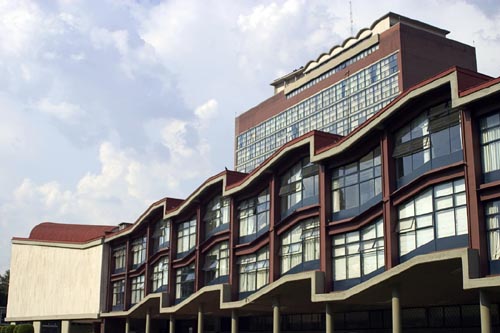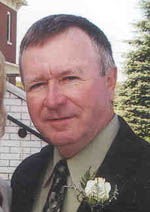| |
|

|
|

|
"Africentric
Alternative School
Debate In Toronto
May Lead To A New
Organizational Model For High Schools
"
Presented by:
Robert Kirwan, O.C.T., B.A. (Math), M.A. (Education) |
|
 The
Toronto District School Board decided to open an Africentric
school under its jurisdiction in time for the 2009-2010 school year. The
decision has generated a great deal of debate in that city with critics
citing that the policy will promote segregation. Supporters point out that
attendance at the school will be voluntary and will be open to students of
all races. The
Toronto District School Board decided to open an Africentric
school under its jurisdiction in time for the 2009-2010 school year. The
decision has generated a great deal of debate in that city with critics
citing that the policy will promote segregation. Supporters point out that
attendance at the school will be voluntary and will be open to students of
all races.
In fact, the only
difference between an
Africentric
School
and other schools in the system is that it will enhance the Ontario
curriculum with Africentric materials and content that better reflects the
heritage of people of African descent. The whole purpose is to
re-integrate disengaged kids back into public schooling. Such
a school would be a first for
Ontario
,
although there are some in the
United
States
in cities such as
Detroit
,
Washington
and
Kansas
City.
Advocates of the system
claim that black students who study about black authors, scientists and
thinkers, have more black teachers as role models, and attend schools that
set clear, high expectations for black students can fight the alienation
some black teens say leads them to drop out of mainstream schools. They
say that with so many people now living in the Toronto region from the
Islands or from Africa, this would come close to the education system they
had back "home" which included the use of mentors from the
community who became role models and supported them through their formal
school studies.
Creating a school which
addresses the needs of a specific group of students is not a new concept.
The
Toronto
board already has a grade school and high school for First Nations
students and an alternative high school for gay and lesbian teens.
We don't have to go
very far to find other examples of "alternative schools". In The
City of Greater Sudbury we have some very obvious alternative schools
currently in place. Marymount Academy is an all-girls school that covers
grades 7 to 12; Sudbury Secondary School has long been recognized as the
school for students with a special interest in the creative arts, dance
and drama; Lockerby Composite School is known as a school for students
with an interest in advanced technology; Loellen is a school that is noted
for it's Baccalaureate Program with a high academic focus; in addition, we
can’t forget the French Language schools and the Catholic schools.
In each of the above
examples the "school-culture" has an atmosphere and a basic
philosophy that emphasizes the distinct nature of their student body. Even
teachers at those schools must be prepared to demonstrate a passion for
the distinct specialty of the school in order to be good "role
models" for their students. Students attend these schools for more
than just the normal academic benefits. They are also looking for
experiences that fuel their own particular passions and interest –
passions and interests that many of them hope to pursue beyond high
school.
It is important to note
that most alternative schools which have a special focus are open to all
students. The exceptions obviously being single-gender or French language
schools. The Ontario
curriculum is covered in all schools and the courses must prepare students
for whatever post-secondary path they wish to follow. The only difference
is that there is a special “character or identity” to the school and
it is a place where students with appropriate special interests will be
allowed to blossom.
We must never lose site
of the fact that underachieving students and high dropout rates are a
literacy problem, not a racial or a language one. It is estimated that
over 25% of Canadians lack the literacy skills needed for daily living.
Furthermore, low literacy rates affect all cultures and socio-economic
classes and are not due to low intelligence.
Low literacy may
actually be a result of a school system that is not “engaging”
students in ways that help them relate learning to their own cultural
experiences or personal preferences. In other words, we must find better
ways of motivating students so that they want to learn. Alternative
schools may be the answer and the Toronto District School Board must be
given credit for bringing this matter out into the open.
It has always been my
personal belief that every child has the ability to learn, some just learn
differently. It has also long been held by most people that higher
literacy levels will improve society, lower dropout rates, reduce crime
and make communities stronger. If we can increase literacy levels among
our children by creating “alternative schools” which are more in tune
to the interests and passions of specific groups of students from
different cultural backgrounds, then it is something we should examine
more closely.
The debate in
Toronto
may soon result in an organizational model where we create schools, or
classes within schools, designed specifically for students who are
interested in computer games; in the outdoors; in fitness; in hockey; in
soccer; in medicine; in animals; in math; in writing; the list goes on and
on. Bringing students together in an environment where they can study and
work with other students who share common interests or passions may be all
that is needed to generate the excitement in learning and help students
achieve their full potential. Up until now, we have been grouping students
in accordance with their academic abilities. Perhaps it is time to
remember that “if we always do what we’ve always done, we’ll always
get what we’ve always got.” If we are not totally happy with what we
are getting out of our education system today, then perhaps it is time to
do things differently.
There are obviously
some organizational challenges that must be addressed before this model
can be implemented, but that doesn’t mean we can’t take the first
steps to making it happen.
This idea may have already
begun to move into the elementary school grades now that the Toronto
School Board will be reopening a school it closed over 20 years ago to
house a special "Arts" program for Grades 6 to 8. It will be
near the existing Etobicoke School of the Arts and will offer a curriculum
focusing on vocal, dance, drama and visual arts. |
|
| |
|

|
|

|
The GREATER SUDBURY EDUCATION CENTRE is
a place where everyone should feel free to participate. This is not
intended to be a place where you get only one viewpoint on important
issues in education. Through the collaborative efforts of hundreds
of readers we will together create a truly remarkable
"magazine" where the focus is on education, today and
tomorrow. I want this to be a resource that is used by students,
parents, teachers, administrators and indeed anyone with an interest
in education, training and career development. The internet has
opened up an exciting world in which everyone has the right and the
opportunity to shape the opinions and thoughts of everyone else.
Please send your comments or opinions on the above topic. I look
forward to sharing your thoughts with all of our readers.
Robert Kirwan, O.C.T., B.A.(Math), M.A.(Education)
Publisher of the GREATER SUDBURY EDUCATION CENTRE |
|
|
|
|